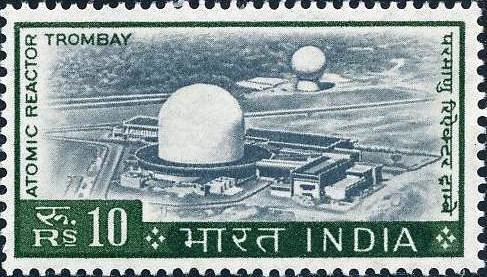New Delhi, April 18, 2025 – In a significant policy shift, the Indian government is preparing to amend its nuclear liability laws to attract foreign participation in the country’s civil nuclear energy sector, according to official sources. The proposed legislative changes aim to ease concerns over supplier liability in case of nuclear accidents—concerns that have kept major international players like General Electric and Westinghouse Electric away from the Indian market for over a decade.
At the heart of the proposed reforms is a plan to limit the legal liability of nuclear equipment suppliers to the value of their contracts, while also placing a time-bound cap on the period within which claims can be made. This would mark a significant dilution of India’s Civil Liability for Nuclear Damage Act of 2010, which previously allowed plant operators to pursue suppliers for unlimited compensation in the event of an accident.
A Long-Awaited Shift
The move is being driven by Prime Minister Narendra Modi’s goal of expanding India’s nuclear power capacity to 100 gigawatts by 2047, up from just under 7 GW today. With the country increasingly reliant on clean energy to meet its climate goals and rising electricity demand, nuclear energy has emerged as a key strategic sector.
While Indian nuclear projects have historically leaned on technology and funding from Russia and France, foreign companies from the United States and other Western countries have been reluctant to enter the market. The reason: India’s liability framework, which deviates from international norms that place the onus of nuclear accident liability squarely on the plant operator.
“The current regime, shaped by post-Bhopal sensitivities, has acted as a deterrent to global technology providers,” said a government official involved in the drafting process. “The goal now is to balance accountability with investor confidence.”
Aligning with Global Standards
Under international conventions, such as the Convention on Supplementary Compensation for Nuclear Damage, suppliers are generally shielded from liability, with the primary responsibility lying with the plant operator. India’s 2010 law, passed in the shadow of the 1984 Bhopal gas tragedy, took a different route, allowing for supplier liability under Section 17(b)—a clause that foreign investors saw as vague and legally risky.
The proposed amendment will cap supplier liability at the contract value and introduce a limitation period for claims, effectively reducing the legal exposure of suppliers. The new provisions are also expected to introduce a lower liability threshold for small modular reactor (SMR) operators, encouraging innovation and entry by smaller players.
Private Sector Interest on the Rise
The legislative overhaul comes as top Indian conglomerates express interest in entering the nuclear space. Companies like Reliance Industries, Tata Power, Adani Power, and Vedanta are in discussions with the government to explore investments estimated at ₹43,000 crore ($5.14 billion) each in upcoming nuclear ventures.
The government plans to table the proposed amendments during the monsoon session of Parliament in July, with sources indicating that consensus-building across party lines is already underway.
Diplomatic and Trade Implications
The policy reform is also viewed as a key step in India’s evolving trade and diplomatic equation with the United States, which has long sought deeper nuclear cooperation with New Delhi. Talks between both governments include a focus on finalising a bilateral civil nuclear trade agreement, which could form the cornerstone of broader strategic and economic collaboration.
The U.S. has made it clear in past rounds of dialogue that resolution of liability concerns is essential for American firms to participate in Indian nuclear projects. With bilateral trade ambitions set to reach $500 billion by 2030—up from $191 billion in 2023—nuclear collaboration could become a signature area of progress.
Clean Energy, National Security, and Global Confidence
India’s nuclear programme is a critical component of its strategy to diversify away from fossil fuels while ensuring base-load power availability. Unlike solar and wind, which are intermittent, nuclear energy provides a consistent source of power—and has the potential to reduce India’s dependence on coal without compromising energy security.
With geopolitical tensions redrawing global supply chains and energy partnerships, the timing of this policy recalibration could also bolster India’s credibility as a safe and attractive market for strategic infrastructure investment.
If passed, the proposed amendments to the nuclear liability law could mark a turning point in India’s energy and investment landscape—signalling to the world that India is ready to be a serious player in the global nuclear arena, both as a technology partner and as a market ripe for innovation and growth.











